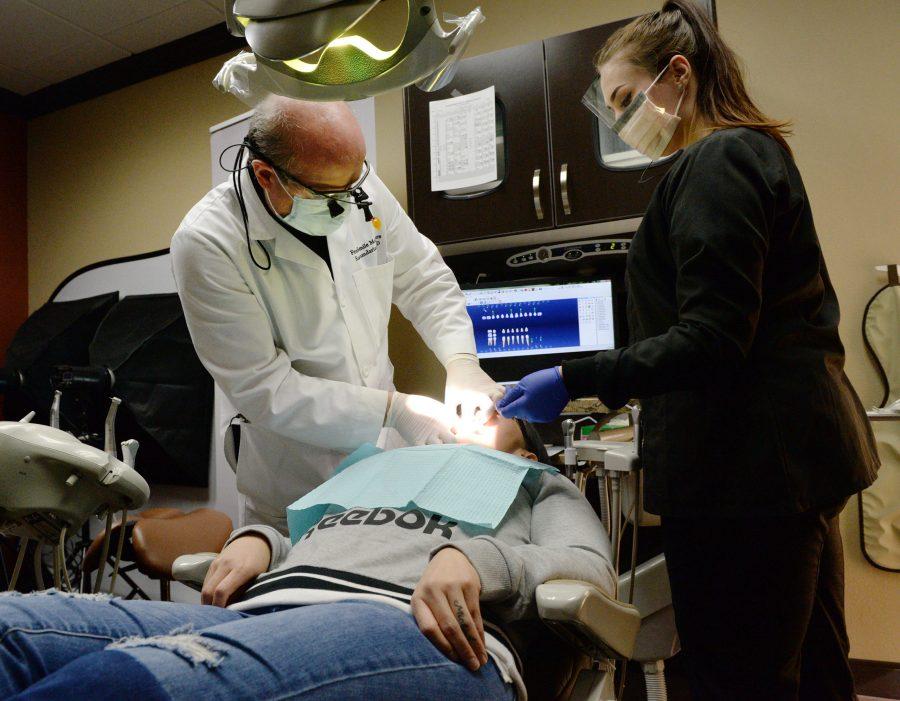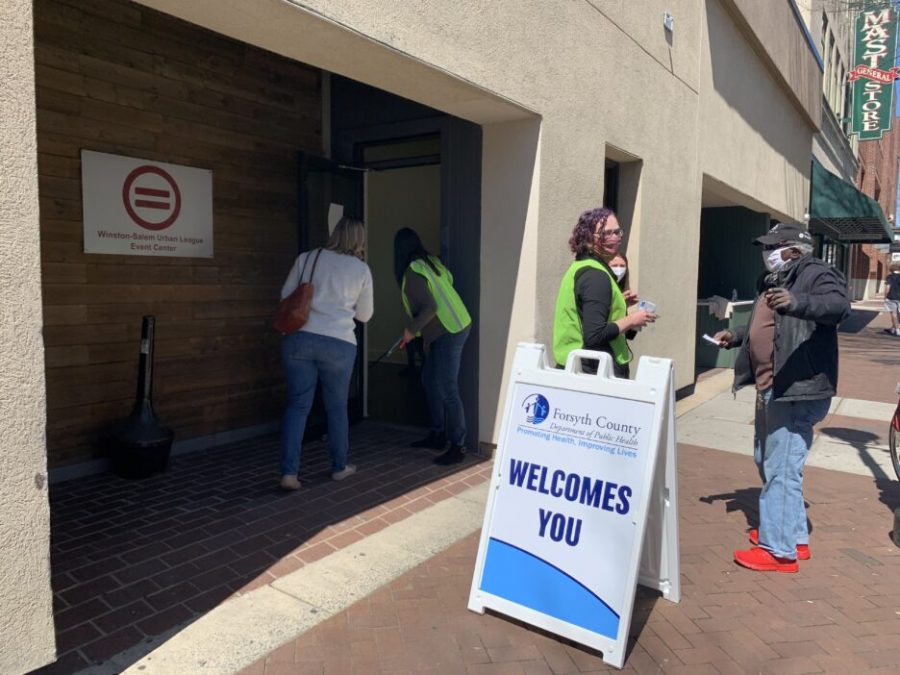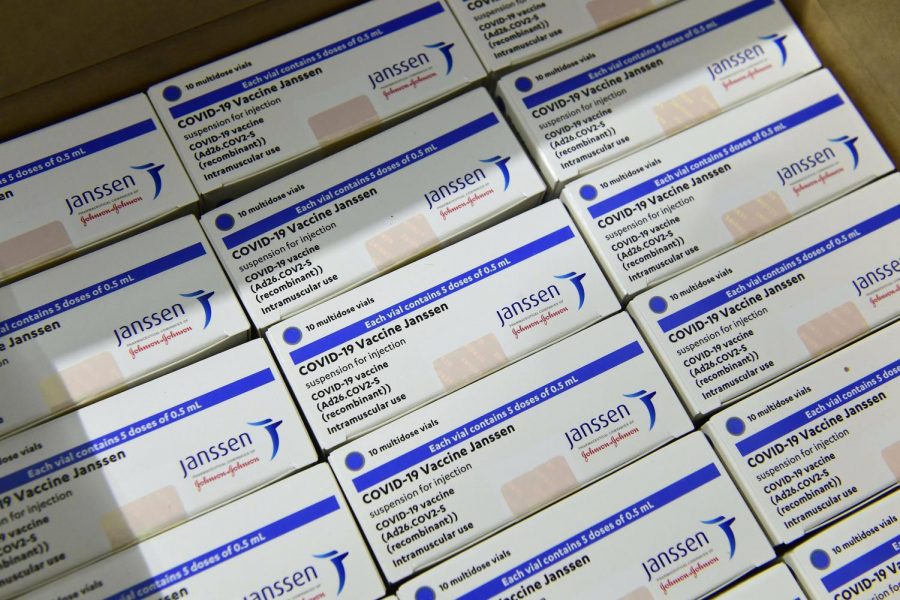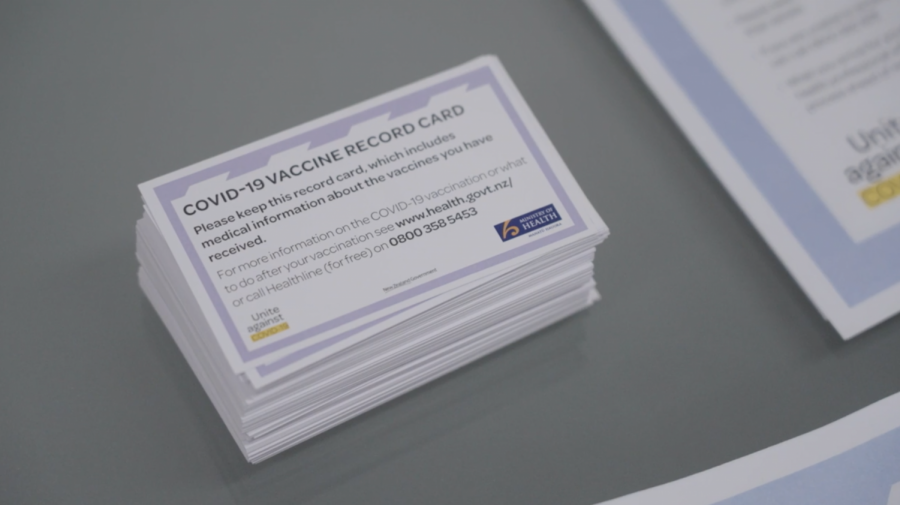If you’re due for wisdom teeth surgery, don’t be too trusting of the Vicodin prescription your oral surgeon recom- mends for pain. People between the ages of 13 and 30 are nearly three times more likely to continue use after their initial post-surgical opioid prescriptions.
Dentists are one of the most frequent prescribers of opioids in the United States. However, many researchers sug- gest their perscribing of opioids is un- necessary. A study published last month in e Journal of the American Den- tal Association reports that the use of nonsteroidal anti-in ammatory drugs
(NSAIDs), such as Ibuprofen, are just as, if not more e ective than opioids for acute pain management.
NSAIDs work by inhibiting sub- stances in the body that promote pain, in ammation, and fever. Studies have shown that these medications, while still e ective, generate signi cantly less adverse e ects (like drowsiness, nausea, and trouble breathing) than do opioids.
Vicodin is a combination of acet- aminophen (Tylenol) and hydrocodone (an opioid) and has been considered the “gold standard” of pain management after oral procedures, such as wisdom teeth surgery. Opioids work by bind- ing to opioid receptors on nerve cells and mimicking endorphins, e ectively reducing the spread of pain signals through the nervous system. Contin- ued use of opioids can lead to tolerance, meaning more is needed to create the same e ect. is can then lead to depen- dence and, eventually, addiction. About
2.1 million Americans live with opioid use disorder.
“In 2017 alone, more than 70,000 people died from drug overdoses, mak- ing it a leading cause of injury-related death in the United States,” according to the CDC. “Of those deaths, almost 68% involved a prescription or illicit opioid.”
A study published by the CDC in 2017 found that after only the third day of taking prescription opioids, the prob- ability of chronic opioid use increased rapidly. Most oral surgeons write a sev- en-day prescription after wisdom teeth surgery.
“After only my second day post-sur- gery, my pain had mostly gone away, and I felt too nervous to keep taking my Vicodin pills,” commented Lizzie Swey- er, a senior who had her wisdom teeth removed this past winter break. “I had heard stories of people my age becoming addicted, and I didn’t want to risk it.”
In addition to the potential for an oral surgery patient to become a chronic opioid user, the over-prescription of these drugs increases the opportunity for drug diversion, an illegal practice of transferring a prescribed drug to some- one else.
According to a study published by Drug and Alcohol Dependence, over 100 million opioid analgesic pills are left unused after outpatient oral surgery ev- ery year in the United States. ese pre- scriptions are a major source of diverted pills and further drive the problem of the opioid epidemic in the U.S.
The researchers from this study made their position on the topic clear: “With the increasing concern about prescrip- tion opioid abuse within the United States, oral surgeons and other dental clinicians have a moral responsibility to limit opioid exposure, to explain the risks of opioid misuse, and to improve patient education on drug disposal.”









Zarifa Megan • Feb 22, 2020 at 12:35 am
You are spreading propaganda that hurts people and leaves them suffering! Addiction from Rx opiate pain medication is significantly rare.
Take a look at the people you quote. They are from PROP and either they paid you to publish these lies or the author failed due diligence for sources. PROP members are highly biased and nothing published by any member should be quoted or used. Any brief analysis will show this propaganda posing as science lacks actual research standards.
Since the author failed to do proper research; here are the citations they should have used.
https://www.painmanagementnursing.org/article/S1524-9042(19)30072-4/fulltext
(with over 100 citations)
https://www.practicalpainmanagement.com/sudden-unexpected-death-chronic-pain-patients
https://medium.com/the-compendia-project/practices-fail-on-smaller-scale-yet-same-practices-forced-nationally-3174696ef6c0
https://www.painnewsnetwork.org/stories/2018/2/26/how-the-opioid-crisis-has-changed
https://www.wpr.org/advocate-says-opioid-crackdown-hurting-people-chronic-painhttps://cergm.carter-brothers.com/2019/12/29/the-us-opioid-crisis-misdiagnosed-mistreated-and-mismanaged-part-one/
https://edsinfo.wordpress.com/2019/12/23/opioids-rx-rare-before-oud-or-overdose/www.painnewsnetwork.org/stories/2018/5/3/study-finds-opioid-medication-effective-for-chronic-pain
https://www.practicalpainmanagement.com/sudden-unexpected-death-chronic-pain-patients
https://medium.com/the-compendia-project/practices-fail-on-smaller-scale-yet-same-practices-forced-nationally-3174696ef6c0
https://www.painnewsnetwork.org/stories/2018/2/26/how-the-opioid-crisis-has-changed
https://www.wpr.org/advocate-says-opioid-crackdown-hurting-people-chronic-painhttps://cergm.carter-brothers.com/2019/12/29/the-us-opioid-crisis-misdiagnosed-mistreated-and-mismanaged-part-one/
https://www.cato.org/policy-report/septemberoctober-2017/myth-opioid-prescription-crisis
http://amp.slate.com/technology/2018/03/pill-limits-are-not-a-smart-way-to-fight-the-opioid-crisis.html?__twitter_impression=true
https://omny.fm/shows/roy-green-show/cutting-chronic-pain-patients-off-opioid-medicatio
https://www.circa.com/story/2018/04/02/nation/fentanyl-made-illicitly-could-have-inflated-opioid-prescription-deaths-and-wrongly-influenced-cdc-guidelines-on-opioid-prescribing-some-doctors-say
https://www.ncbi.nlm.nih.gov/pubmed/28582659j
https://www.acsh.org/news/2017/10/12/opioid-epidemic-6-charts-designed-deceive-you-11935
https://atipusa.org/news/has-the-opioid-pendulum-swung-too-far-finding-the-balance-between-pain-and-addiction/
https://atipusa.org/2018/04/02/atip-white-paper-on-prescription-opioids-and-chronic-pain/
https://reason.com/blog/2018/04/19/as-opioid-prescriptions-fall-opioid-deat
http://www.painnewsnetwork.org/stories/2018/5/3/study-finds-opioid-medication-effective-for-chronic-pain
https://www.statnews.com/2018/05/01/fentanyl-opioid-overdose-deaths-prescription-painkillers/
https://medium.com/@jonleighton1/why-access-to-morphine-is-a-human-right-80ce2965de1a
Pam • Feb 21, 2020 at 9:57 pm
What s crock of bs! Not only did I have four severely impacted wisdom teeth removed, and given pain medication to go home with, but my daughter, son, five siblings, brother and sister in laws, cousins, we ALL had wisdom teeth removed, we ALL were given pain medication, and not a one of us ever became an addict. This article is pure propaganda trash!
Howard Techau • Feb 21, 2020 at 9:15 pm
This is way overblown fiction. Yes, there are a few who did addicted, but these are people who go to the streets to get more of this medication. The vast majority of people are not affected. The 70,000 people are mostly illicit fentanyl, heroin, heroin laced with fentanyl, morphine, and others. There is also a rise in meth, cocaine, etc. due to the so called “opioid epidemic”. Prescription drugs are not the problem. There is a low addiction rate to prescription drugs from people in chronic pain. (>2%). Maybe you should contact chronic pain patients and talk with them about pain medications or lack thereof.
Mike Roberts • Feb 21, 2020 at 8:29 pm
What a ridiculous premise! Have a couple teeth pulled and you become an addict!! If this happened 70 percent of Americans would be drug addicts. I’m making that number up but why not , most stories written about the so called crisis just pull numbers out of nowhere! I had my wisdom teeth cut out surgically removed couldn’t be extracted when I was 17. Yes I was given an opiate not Vicodin’s it wasn’t as prevalent 35 years ago but the point being I never took another opiate until I was 40 that would be 23 years later. Now from 40 to 53 I have responsibly been off and on opiates a number of times with the 20 something surgeries and serious procedures I have had . Still not addicted!
Shay Biyce • Feb 21, 2020 at 7:32 pm
Opioid Crisis:
Myth- Reducing prescriptions of opioids will end the opioid crisis.
Fact- Prescriptions have been on a steady decline since 2010 yet fatal overdoses have risen ever since.
Shay Biyce • Feb 21, 2020 at 7:30 pm
There are people who will develop an opioid addiction after taking only one pill. It is likely caused by genetics and it has ALWAYS affected about 1% of the population, or according to Brandeis University where Kolodney works, there are about 2.5 million opioid addicts in America, which is less than 1% of our population of 330 million Americans. This 1% is the exact SAME percentage as we had in 1919, one hundred years ago, and so there is likely a strong genetic component to opioid addiction. Dr. Kline has an excellent video on this where he says that those of us who did not ever get a strong high feeling or magic carpet ride like effect from taking a prescription opioid the first time will NEVER develop a true opioid addiction. Those who do get this effect, kind of fall in love with taking opioids. Of course all of us who ever take long term opioids will all become physically dependent on them and then will all need to be weaned off them slowly if we ever need to get off them, and likely this is partly where all of the confusion comes from. Guys like addiction psychiatrist Kolodney and PROP are intentionally conflating opioid addiction with opioid dependence, and are falsely calling dependence an opioid use disorder or OUD just to get more patients and to make more money for themselves, and to sell more Suboxone, so this and many other commonly held prejudices about CPP who take opioids causes much confusion. We will now need to re-educate everyone and correct all of the massive misinformation and this will not be an easy task.
Shay Biyce • Feb 21, 2020 at 7:29 pm
You’re a rediculous person for writing this article. People are starting to catch on to the anti-opiate crusade. Ffs, look into it a little further than what you hear from the media & prop.
https://www.painmanagementnursing.org/article/S1524-9042(19)30072-4/fulltext
https://www.youtube.com/channel/UCr7rhfWEP_NKI7SfwiTFfxA
tinwi • Feb 21, 2020 at 5:31 pm
Please name the “researchers”. Im pretty sure Chou, Balantyne, and other PROPers’ names appear in these studies. Most of opiodhysteria has been fueled by them and their “research”. They are zealots! A cult almost. They were once thought of as the “opiod lunatic fringe”, which they are pretty radical- but now they are driving medical policy and law! Please do an expose on PROP, and how they got the CDC guidelines written. Do you know that the CDC does not have jurisdiction over medical prescribing? Thats the FDA. They turned the PROP zealots away. Please do the research. So you know who you are parroting
Howard Techau • Feb 21, 2020 at 9:16 pm
Also, Andrew Kolodny.
Johnny Pain • Feb 22, 2020 at 9:22 am
Forgot Dandy Andy (AK) A@@ Klown
tinwi • Feb 22, 2020 at 3:53 pm
He seems to be more involved in grandstanding in front of cameras and testifying for big bucks. I dont see his name on that much research. I usually see Chou
Lauri • Feb 21, 2020 at 5:12 pm
This is a LIE!!! Me, my husband, each of our three children had wisdom tooth extractions and were rx’d REAL pain medication. NO ADDICTION! People who believe this MORONIC headline are morons themselves. Google the Cochrane study of 2010 for the truth.
PainWarrior • Feb 21, 2020 at 1:53 pm
I know it takes time to educate yourself properly, but PLEASE, get a clue! https://www.painmanagementnursing.org/article/S1524-9042(19)30072-4/fulltext?fbclid=IwAR2PdAl1q9yJSBdak9qo6JQQMr3JwTcIM7oGWzoqnuK9L9weybOJ-uZ4H70
PainWarrior • Feb 21, 2020 at 1:52 pm
What utter ignorance and drivel! Stop with the “opioid hysteria” already! It is tiresome, and far worse, millions of patients are suffering and dying as a result of untreated/under treated pain. ENOUGH!!! https://www.acsh.org/news/2020/02/17/meth-back-never-blundering-opioid-policies-largely-blame-14576?fbclid=IwAR2QA_o2KDF02IIH_1DSD8qABJwFuYgkqVOsGCdJrDlAdbNK405waYDB5mE
Stephanie Lynn Henry Logan • Feb 21, 2020 at 1:00 pm
I had my wisdom teeth out at 18 and could not imagine no pain meds. That was the first time I had taken opiod meds. I had two scripts. When the pain was gone I stopped taking them and did not get addicted. Same with my two sons. This article is not true! It’s barbaric to not treat pain and make a person suffer. Only a very small percentage get addicted so you want to make the masses suffer? There is a illegal drug problem not a prescription problem. Do your research before you publish nonsense like this.
Judy • Feb 21, 2020 at 9:42 am
If you people would actually do some research into just what it is that creates and actual addiction, you would not look so ignorant. It takes more than just a medication to create and addiction.
Rebecca • Feb 21, 2020 at 3:44 am
Is this a joke? I had my wisdom teeth taken out 35 years ago never had a problem with severe pain. Until about 2 and 1/2 years ago. What on God’s green earth, do they have to do with each other? Human suffering is inexcusable. Trying to change the subject is absolutely not working with me.
Jeffrey Edney • Feb 21, 2020 at 3:34 am
This article is based on data prior to 2011. Prescriptions are not correlated with overdoses and haven’t been for at least 9 years. Please help correct this common misperception so pain patients are not tortured. Addiction rates are below 1% and not as common as many think.
Rebecca • Mar 28, 2020 at 10:38 pm
I would like to know why my comment was removed? I didn’t ask for it to be removed the United States is supposed to be a country of free speech
Rebecca • Mar 28, 2020 at 10:40 pm
I’m going to try this again I had my wisdom teeth out 25 years ago didn’t need pain medication again until 3 years ago when I got injured badly it was the only way I could walk one has nothing to do with the other!!